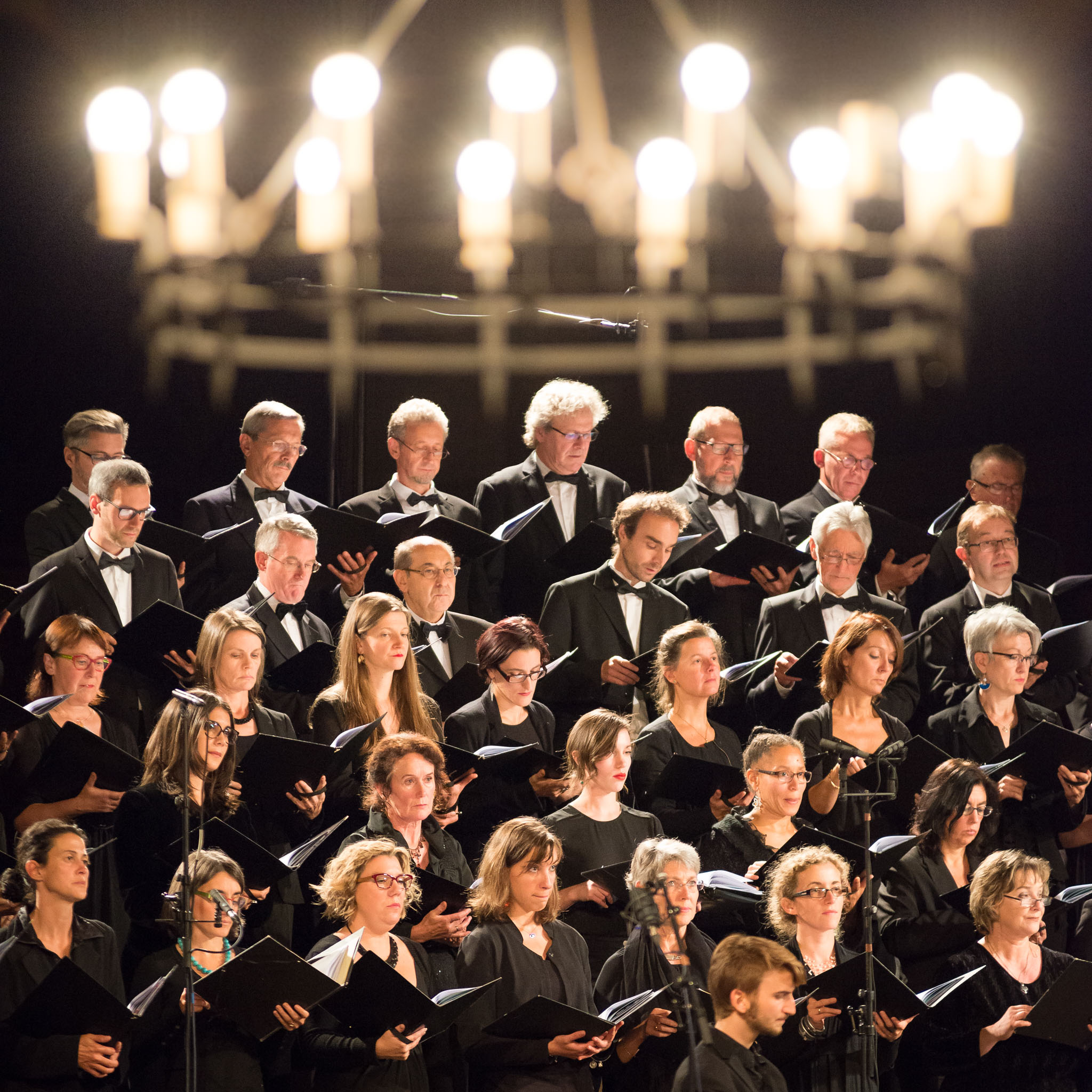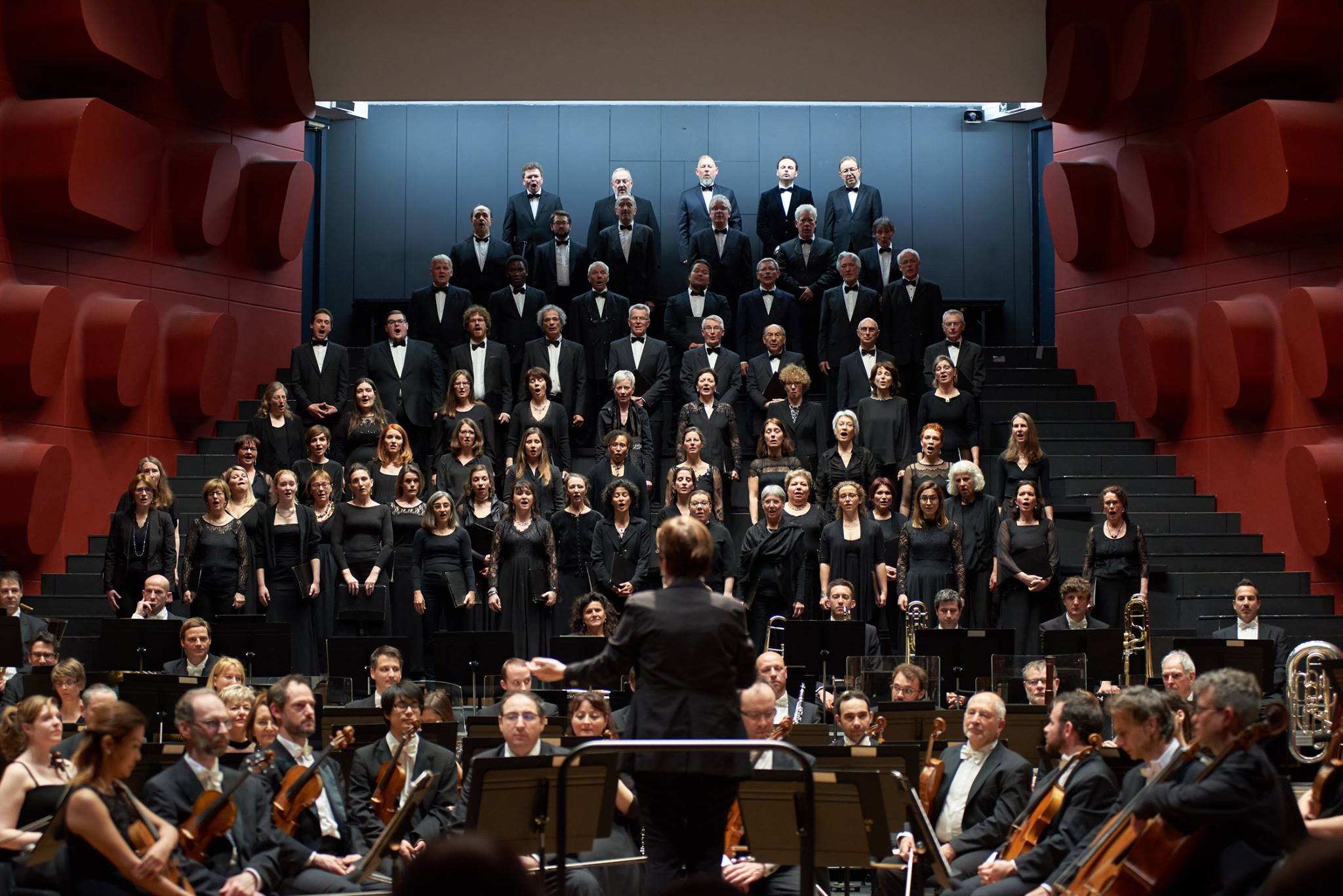” Last March, when the lockdown was announced, the rehearsals of the Strasbourg Philharmonic Choir were suspended and with them the thread of our weekly and monthly meetings, uninterrupted for the past seventeen seasons. Thus the pandemic brought the final stretch of our season to a halt. Eight concerts were cancelled: Mozart’s Requiem and Mahler’s Second Symphony with the Orchestre Symphonique de Mulhouse, Mahler’s Third Symphony with the Orchestre Philharmonique de Strasbourg, and the Canto General with Les Percussions de Strasbourg. This last programme, organised within the framework of the Greek Presidency of the Council of Europe and in which the choir committee had invested a great deal of time and effort, included numerous outreach activities focusing on the life and works of Mikis Theodorakis and Pablo Neruda, in partnership with several structures in Strasbourg – a cinema, bookshops, cultural centres, and a class of secondary school students.
My concern during this break was musical – how to maintain the link with the choristers, to give them musical nourishment and keep their voices in good condition ? – but also social – how to give moral support to those who needed it ? – and prospective – how to continue to construct our collective personality, and to think about the future here and now ?
Maintaining the link among the singers and with the public – ‘Our Lockdown Songs’
Our collective feeling is powerful and long established, so it was quite natural for us to stay in contact through messages and aperitifs via Zoom. As we could no longer express ourselves as a unitary whole, we kept up contact with our audiences through our words as individuals with ‘Our Lockdown Songs’: each evening on Facebook, a member of the choir presented a piece of music of his or her choice. The posts of these choristers, touching or amusing by turns, gave me the opportunity to get to know each of them in a more individual and personal way. To sense their presence and their involvement, despite the lack of clarity about the future, was a great source of strength for me.

Keeping up musical activity at a distance: vocal training, listening, musical culture
I tried to keep the choristers’ musical attention focused on the works we are preparing through a regular process of ‘refreshment’: analysis of the scores, video capsules on the history of composers. I received wonderful assistance from one of the choir’s singing teachers, who made videos of vocal techniques that were as amusing as they were effective.
Finding out about others and breaking the solitude
The survey of choirs around the world, the results of which you are reading now, enabled me to break the solitude of reflection and to supplement the information I was able to pick up here and there with personal testimonies. It was fascinating to read the experiences of my colleagues: I have great admiration for their initiatives, which made me proud of our profession – an excellent morale booster !
Looking ahead to the future
The most difficult aspect in this period, as is still the case now, has been to continue to build our next season, to think about the ‘aftermath’, but with zero visibility. After arranging a new date for our Canto General project, the committee, and I took advantage of this break to do a thorough osterputz* in the Alsatian style. I have no doubt that the in-depth reflection we have undertaken will be fruitful for our future functioning.
For the continuation of our season, given how uncertain it is that concert venues will be able to programme musical forces like ours in the autumn, I have come up with several scenarios and programmes. It has to be said that the rhythm of government communication, from one fortnight to the next, has not always made things easier – I am quite envious of the Japanese, for example, who have established a clear schedule for restarting their activities.
On this point, just as much as in the musical aspects of our practice, we all carry within our style of expression the characteristic features of our respective cultures – and that’s precisely what is so fascinating, isn’t it ? For our part, we are happy to adopt our city’s slogan: ‘Strasbourg the optimist’.”
Catherine Bolzinger
Artistic and Musical Director of the Chœur Philharmonique de Strasbourg
* spring cleaning

© Grégory Massat